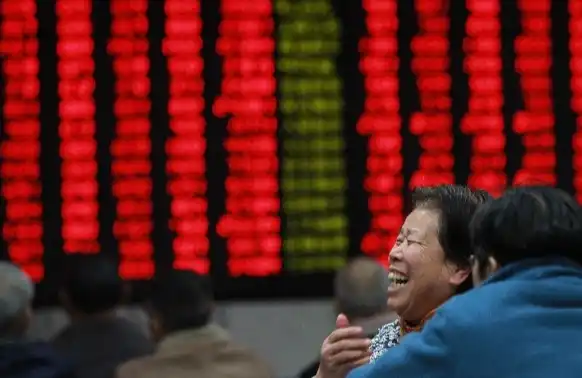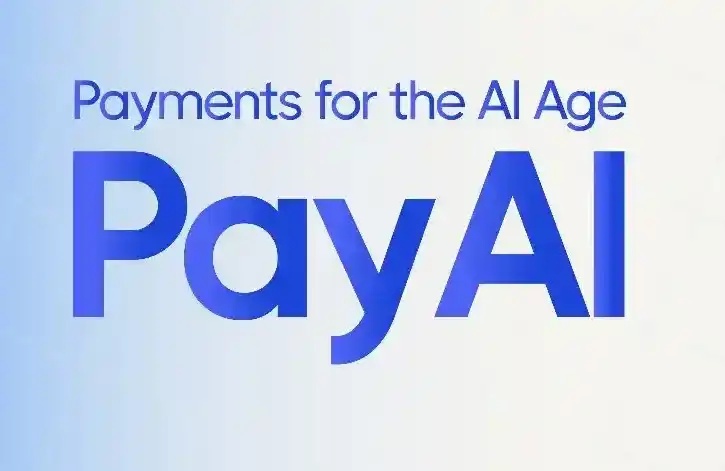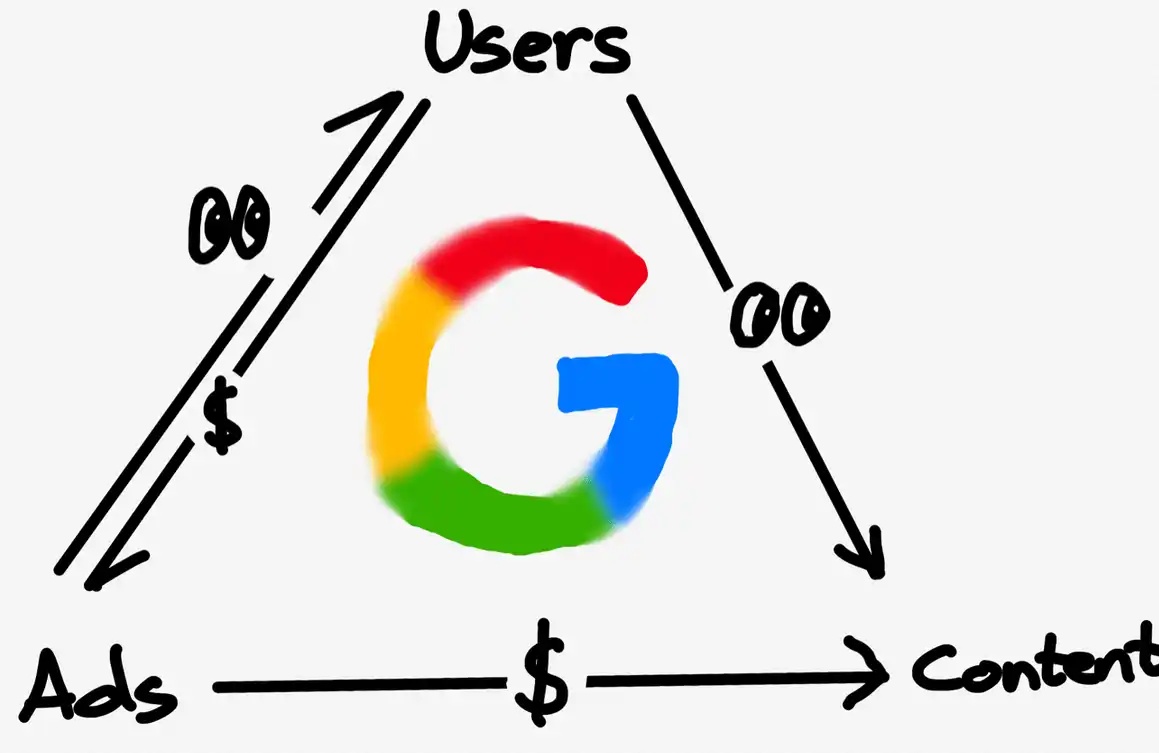The Story Behind Coinbase's Acquisition of Echo: Cobie's 13-Year Journey from a $200 Investment to Fame
Original Article Title: "The Story Behind Coinbase's Acquisition of Echo: Cobie's 13-Year Journey from a $200 Entry to Fame and Fortune"
Original Article Author: David, DeepTech TechFlow
On October 21, 2025, Coinbase announced the acquisition of the on-chain investment platform Echo for $375 million.
Just the day before, Coinbase had spent $25 million to acquire an NFT, solely to revive a podcast. Two days, two transactions, totaling $400 million, all pointing to the same person:
Jordan "Cobie" Fish.
Who is Cobie?
If you follow the English crypto scene, this name carries too many labels behind it. With 800,000 Twitter followers, Echo founder, UpOnly crypto podcast host, Lido Finance co-founder... or the same person who once blew the whistle on insider trading at Coinbase.
In the crypto world, he is one of the few OGs who has been around since 2012 and is still actively involved in the market.
After the acquisition news was announced, Cobie wrote on X: "I really didn't expect Echo to be sold to Coinbase."
It may sound like a cliché, but those who follow him on social media often know that this may be genuine. Because when he founded Echo two years ago, he also said:
"I thought there was a 95% chance it would fail."

Someone who always proclaims failure ended up receiving nearly $400 million in investment. As a frequent participant in various crypto project investments, Cobie doesn't seem to lack money.
But that's not how the story started.
Similar to every crypto player with dreams of getting rich, according to his own account, in 2012 when he first entered the scene as a student, he bought some Bitcoin for $200.
From an unknown student to a crypto OG, the path Cobie has traveled is almost a microcosm of the 13-year history of the crypto industry: early idealism, the craze of ICOs, the rise of DeFi, the fall of FTX... he was there for it all.
The key is, he not only witnessed the ups and downs but also survived to this day.
In this industry where everyone is eager to get rich quick, enduring for a long time is not only a rare stroke of luck for most people but also an extremely challenging perseverance to maintain.
$200 Entry, Developing a Celebrity Coin from Scratch (2012-2014)
In 2012, the then Jordan Fish was studying at the University of Bristol in the UK.
Majoring in Computer Science, he bought the first batch of Bitcoin for less than $10 per coin. According to his later Twitter posts, he entered the crypto industry with only $200 as his initial investment.
At a price of $10, this was roughly equivalent to 20 Bitcoins at the time. He also gave himself an online alias: CryptoCobain, later changed to Cobie.
In 2013, Bitcoin surged from $13 to $1000. In January of the same year, Cobie found a job at a UK startup called CYOA as the CTO.
Until a serendipitous opportunity arose, Cobie developed a "celebrity coin" that changed his career trajectory.
In 2011-2012, very few mainstream Western media outlets reported on Bitcoin, and the "Keiser Report" was one of the few early media shows that continuously discussed cryptocurrency, playing a significant role in shaping early community awareness.
The host of this show was Max Keiser, who later became a Bitcoin advisor to the President of El Salvador.

At the time, Keiser himself accurately predicted that Bitcoin would rise above $1000 and, with his exaggerated performance style such as frequently tearing apart dollar bills on the show, became the "Mad Prophet" of the crypto world.
At that time, Keiser jokingly tweeted that if a coin named after him, Max Keiser Coin, could reach a market cap of $1 billion, he would appear naked on the show.
Then, Cobie and another partner, Luke Mitchell, actually created a coin called MAX (Maxcoin) and forked it based on Bitcoin at that time. This may be the first celebrity coin to appear on TV in crypto history, predating the recent trend of presidents and celebrities launching their own coins by over 10 years.
On January 28, 2014, in Episode 555 of the Keiser Report titled "Launch of Maxcoin," Max Keiser, in front of a global audience, mined the genesis block of MAX.
On February 14, Valentine's Day, Maxcoin surged to $3.11, with a market cap of $8.5 million. Cobe and Luke were even invited to Keiser's show to discuss technical details.
Then reality struck. Besides Keiser pumping it on the show, Maxcoin had no practical use. No merchants accepted it, no use cases. To make matters worse, in February 2014, Mt. Gox went bankrupt, leading to a collapse of the entire crypto market.

By December 31, 2014, Maxcoin had closed at $0.00666, a 99.8% drop. Development ceased, and even Keiser himself no longer mentioned the coin.
Cobie continued to work at the UK tech startup until April 2015. As a developer, he mentioned on Twitter that he had never held any Maxcoin.

By this time, Bitcoin had plummeted from $1000 to $200. Most of those who entered the market in 2013 had likely permanently left the crypto space, but Cobie chose to stay in a different capacity.
Growth in Web2, Becoming a KOL on Twitter (2015-2020)
In April 2015, Cobie left his position as CYOA's CTO and joined a programming education startup called Enki as Head of Growth.
During this time, the crypto market was eerily quiet. Bitcoin was ranging between $200-$400, with most altcoins either at zero or close to zero. Maxcoin had been completely forgotten.
Cobie could have, like most, treated his earlier foray into coin launches as a youthful adventure and then returned to normal life. Indeed, on the surface, it seemed that he did.
In August 2017, he moved to Monzo, the hottest fintech unicorn in the UK. This digital bank was then at the forefront of promoting a purely mobile banking experience, seeking to disrupt traditional banking.
That summer, when Bitcoin had just crossed $2000, the ICO craze was brewing; by December 2017, Bitcoin would soar to nearly $20,000, sending the entire crypto world into a frenzy.
But at that time, Cobie was still in the Monzo office.
Outside the office, from 2017 to 2020, the crypto market went through a full bull-bear cycle. The madness at the end of 2017, the crash of 2018, the sideways movement of 2019, and the COVID crash in March 2020.
During these three years, public reports indicated that "he had earned enough money while working at Monzo to be able to fully dedicate himself to cryptocurrency."
At the same time, his Twitter activity never stopped, commenting on Bitcoin prices, mocking ICO projects, analyzing DeFi protocols... He became a staple member of Crypto Twitter, the type of voice in the community that was always online and always had an opinion.
By March 2020, in an interview, he revealed his asset allocation: only 5% in cryptocurrency, 95% in cash and other traditional assets.
This number surprised many. As a well-known figure in the crypto space, he hardly held any cryptocurrency.
Perhaps this precisely explains why he could stay at Monzo for three years. He didn't need to rely on trading to make a living; he had a stable income and career development.
In the summer of 2020, everything changed. DeFi exploded. Compound issued the COMP token, starting liquidity mining. Uniswap airdropped UNI, making early users overnight millionaires. Suddenly, those who persisted until now realized that new opportunities had arrived.
In September 2020, Cobie left Monzo. He had lurked in traditional tech companies for over 5 years.
But this time, he was no longer just a junior programmer; his work in product and growth roles provided both income and experience, and, most importantly, his knowledge of the financial industry was invaluable.
The once zeroed-out Maxcoin developer was about to become one of the most successful early investors in the DeFi era.
Backing Lido, Becoming a Podcaster (2020-2022)
In October 2020, a month after Cobie returned full-time to the crypto circle, he made an investment that would change his destiny.
At that time, two Russian developers were working on a project called Lido, and the solution was liquid staking: users could stake any amount of ETH and receive stETH as a proof of stake, which could then be freely traded.
Most people may not have understood the significance of this. But Cobie clearly did. Not only did he invest, but he also helped the project with audits, wrote tweets, and introduced it to other investors. He became one of the earliest and most active supporters of Lido.
By the end of 2021, Lido had become the largest staking service provider on Ethereum. By 2024, assets managed by Lido exceeded $30 billion, and the market capitalization of the LDO token surpassed $2 billion.
Cobie's early investment saw a return of over 1000 times. According to reports from multiple overseas media outlets, this single investment alone made him earn "millions of dollars."
But what truly transformed Cobie from a Twitter KOL into an industry influencer was a podcast.
In April 2021, Cobie and another crypto influencer, Ledger, co-founded the UpOnly podcast.
The timing was also perfect. It was during the peak of a bull market when everyone wanted to learn about cryptocurrency, but most podcasts were either too technical or too shallow. UpOnly found a balance:
Discussing in-depth topics in a light-hearted manner.

Industry giants like Vitalik, Michael Saylor, Do Kwon, SBF, and CZ have appeared on his podcast. These individuals were willing to chat with the two podcast hosts for an hour or two.
In the show, Cobie and Ledger didn't pretend or hold back; they asked silly questions, made jokes, and admitted when they didn't understand. This allowed the big shots, accustomed to serious interviews, to relax and say many things they wouldn't say in other settings.
At the same time, the podcast's business model was also intriguing. They issued NFTs (UpOnly NFTs), acting as membership cards, allowing holders to participate in recordings, ask questions, and receive exclusive content.
These NFTs later traded on the secondary market for over 10 ETH. A few days ago, Coinbase acquired this NFT series for $25 million.
It is worth mentioning that the most ironically iconic sponsor of UpOnly was actually FTX. SBF's exchange sponsored UpOnly for a long time until it suddenly collapsed in November 2022.
On the day of the collapse, Cobie was live streaming, tracking in real-time a suspicious $400 million fund flow. He was analyzing on-chain data while explaining what was happening. This live stream later became a crucial record of the FTX collapse.
Another ironic event was when Cobie became the whistleblower for insider trading at Coinbase.
In December 2022, Cobie tweeted showing a wallet address accumulating a significant amount of a token before its listing on Coinbase. This was not a one-time coincidence but a recurring pattern.
Within hours, this tweet was retweeted tens of thousands of times. The media started reporting, and regulatory bodies initiated investigations.
Ultimately, the U.S. Department of Justice sued Coinbase's former product manager, Ishan Wahi, in the first-ever cryptocurrency insider trading case in U.S. history.
Coinbase had to publicly respond and improve its listing process. The entire industry began discussing transparency issues. Cobie, once a meme coin developer who went to zero, had now become a watchdog of the industry.
By the end of 2022, his influence peaked. He now had over 800,000 Twitter followers, making him one of the most influential voices in the English-speaking crypto community; UpOnly also became one of the most popular crypto podcasts.
More importantly, he had established a unique persona:
He was both an early adopter with a technical and investment background in the industry and a skeptic of hype, revealing behind-the-scenes activities, maintaining a certain level of distance. In his own words:
“I’m still a cynic (Cobain), except now I have money.”
However, Cobie himself perhaps knew that the lifespan of a Key Opinion Leader (KOL) is short, and a podcaster could become outdated. He needed to establish something more enduring.
Echo, Potentially the Final Venture (2023-2025)
In early 2023, the crypto market was still at the bottom of a bear market. The aftermath of FTX's bankruptcy was still looming when Cobie posted a cryptic tweet on Twitter:
“The best time to build is when everyone thinks there is no hope.”
Several months later, Echo quietly went live.
Unlike the earlier high-profile development of the cryptocurrency Maxcoin, Echo had no launch event, no whitepaper, not even a formal announcement. It was just a simple website, with an even simpler function: to help projects raise funds from early-stage investors.
Specifically, Echo did two things.
First, it allowed crypto projects to sell tokens to accredited investors through private sales. Second, through a tool called Sonar, it enabled regular users to participate in certain public sales as well. The entire process took place on-chain, non-custodially, and transparently.

Initially, it hardly resembled a product. The interface and functionality were simple; it was just a tool to help projects and investors sign SAFTs (Simple Agreement for Future Tokens). But the first project quickly came: Ethena.
Why did Ethena choose a newly launched unknown platform? The answer is simple—because of Cobie.
Ethena's founder, Guy Young, was a frequent guest on the UpOnly podcast and had a good relationship with Cobie. More importantly, Cobie not only provided the platform but also invested in Ethena himself, openly supporting it on Twitter. For a new project, Cobie's endorsement was invaluable.
Ethena completed its seed fundraising through Echo. A few months later, when Ethena became one of the hottest DeFi protocols of 2024, Echo's credibility was instantly established.
Subsequently, major projects such as MegaETH, Initia, and Plasma all launched fundraising on Echo; by the middle of 2024, Echo's operating model had matured. A typical process was as follows:
A project approached Echo, the Echo team conducted basic due diligence, the project set fundraising terms, and tokens were issued through Echo's smart contract.
Investors (whether institutional or individual) invested through the platform, with both funds and tokens transparently circulating on-chain.
The key point is that Echo itself does not custody funds, provide investment advice, but merely offers tools and connections.
Cobie's role goes far beyond being the founder of this fundraising platform. He is actually Echo’s biggest BD (Business Development). Every time he interviews a founder on the podcast, it could potentially turn into a client for Echo. Every time he comments on a project on Twitter, he inadvertently advertises Echo.
He didn't even need to actively promote himself. When you are one of the most influential voices in the crypto community, people naturally come to you. By October 2025, when acquired, Echo had already processed over $200 million in transactions, involving around 300 investments.
In a sense, what Coinbase acquired was not just the Echo platform, but the entire ecosystem Cobie had built. This also explains why Coinbase was willing to pay $375 million; they were buying the key to enter this network.

The deal structure indicates this was not an all-cash acquisition, as it includes Coinbase stock, meaning Cobie is now also a shareholder in Coinbase. The Echo team will join Coinbase, but the brand will remain operationally independent for now. The Sonar tool will be integrated into Coinbase's product suite.
From Coinbase's perspective, the logic behind this acquisition is very clear.
In July 2025, they had just acquired the token management platform LiquiFi. Now they have acquired Echo. LiquiFi manages post-token issuance transactions, Echo handles the funding round, combined with Coinbase's exchange business, forming a complete chain from the primary market to the secondary market.
After the acquisition announcement, the community's reaction was quite interesting.
Some said Cobie sold too early; Echo could have become an independent unicorn. Some said this proved the feasibility of KOL entrepreneurship. Others dug up old posts from 2014, comparing Maxcoin going to zero and Echo's exit, lamenting "ten years to forge a sword," indicating you always have a chance at the poker table.
And Cobie himself doesn't seem to have stopped to rest. He immediately announced joining Paradigm as an advisor, "focusing on the liquid markets, trading, and DeFi trends."
The Final OG
In the crypto world, 13 years is an unbelievably long time.
Most early participants from 2012 have either retired or disappeared after going to zero in some cycle. Exchanges have changed generations, public blockchains have changed generations, even the definition of decentralization has changed several times.
But Cobie is still here.
He has witnessed every cycle, participated in every bubble, and survived every crash.
He is not the wealthiest, certainly not the most famous, not even the most successful entrepreneur in the crypto world; but he may be the most well-rounded crypto professional:
He has traded coins, lost money; founded startups, failed; made investments, succeeded; been a KOL, influenced the market, built products, gone through exits.
From Jordan Fish to CryptoCobain, from a college student who bought $10 worth of Bitcoin to an entrepreneur acquired by Coinbase, this story spans a long 13 years.

What has enabled him to survive until now? In his own words, perhaps it is knowing the difference between luck and skill, and being able to navigate between the two:
“I was lucky early on, did some good shitcoin trades very early that set me up for life. I thought I was really good at this thing called cryptocurrency trading.
But anyone who thinks they are good at something right off the bat is wrong. If you’re lucky enough to get into a bull market and trade well on shitcoins, that doesn’t mean you’re good at it.”
Welcome to join the official BlockBeats community:
Telegram Subscription Group: https://t.me/theblockbeats
Telegram Discussion Group: https://t.me/BlockBeats_App
Official Twitter Account: https://twitter.com/BlockBeatsAsia


 Forum
Forum Finance
Finance
 Specials
Specials
 On-chain Eco
On-chain Eco
 Entry
Entry
 Podcasts
Podcasts
 Activities
Activities
 OPRR
OPRR









